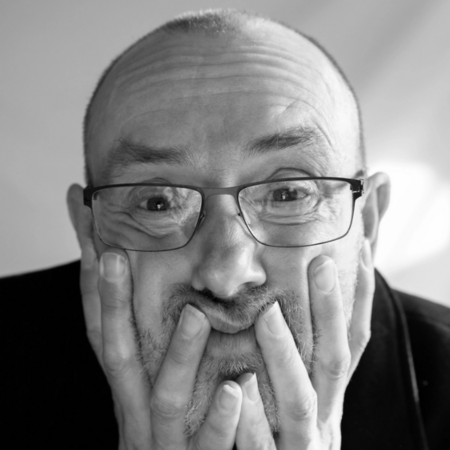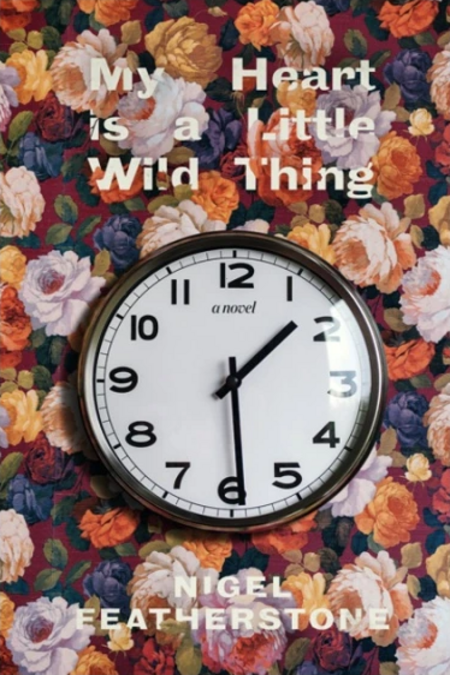Even the most ardently optimistic of us reach a point in life where we have to admit, or more accurately, feel we have to admit, that all of our lofty hopes and dreams are not going to come to fruition (recurrent type A personalities and social media influencers aside, of course).
The reluctance of this admission is not usually greeted by grinding disappointment or wailing and gnashing of teeth but by an exhausted sense of defeat, that we have fought a brave fight but life has got the better of us, leaving us sitting in its detritus that isn’t usually awful but isn’t exactly scaling mountainous heights either.
It’s this this shadowy middle-aged place of brutal life assessment that Patrick, the existentially exhausted protagonist of Nigel Featherstone’s superlatively and poetically insightful novel, My Heart is a Little Wild Thing, finds himself when the constant wear-and-near of looking after his mother, who lives two doors up from him in the delightfully small NSW village of Bundanoon, triggers an argument and a violent act which sends him literally running for the hills.
Only packing the barest of essentials – clothes, toiletries and grinding sense of shame and self recrimination – Patrick heads to Jimenbuen, an isolated property in the Monaro past Cooma where he and his now two geographically and emotionally distant siblings holidays every year when they were kids.
“Lewis had been so open about his life, offering considerable detail, but I had given him only a quick sketch, but there was not much more I could tell him. I was from the Upper North Shore. I was born the son of a doctor. I had attended a private school and then went to a prestigious university. I had sailed through life. I had grown up in a bubble, and in that bubble I had remained. He must have wondered what I had edited out.” (P. 59)
There is a sparseness and a meditative isolationism to Jimenbuen, on which sits an old stone barn which was fitted out years ago for holidaymakers and which has scarcely changed in the intervening years between Patrick’s youth and his mid-forties, a time at which he is belatedly beginning to ask himself, almost accidentally, whether it isn’t possible there could be more to his life than the emotionally exhausted present.
Triggered by his mad dash from Bundanoon into the physical trappings of his long-ago childhood when idle days of holiday were spent roaming the bush, swimming in waterholes and reading a novella titled The Snow Goose, which still holds a very close place in his heart (and which is judiciously quoted throughout), Patrick is forced to confront, in ways languid and yet emotionally intense, what his life is and what, perhaps, it might become.
This is no blinding road to Damascus moment; rather the move to a place of restless questioning and emotional disequilibrium is a gradual, incremental thing, a moving of degrees from stoic acceptance of a life stuck in a comfortable though imprisoning rut to the idea that maybe there is still a chance for his heart, long bound by ideas of duty and self sacrifice, to finally and belatedly run wild.
Patrick has no idea, of course, what this would even look like, but after spotting a rare animal in the bush and meeting a handsome stranger who’s planting trees as part of revegetation project on the property next door, events are set in train that see Patrick step, little by little, find a life that might actually do his heart some good.

It is a beautiful journey to behold, both because it feels so damn relatable – life rarely moves in epic, blockbustery ways which Featherstone captures with his characteristic grace and empathetic insight (and language so achingly lovely, you wish you could reach out and embrace it) – but also because Patrick is coming alive in ways that warm the soul and which feels revolutionary even as they occur in small, sometimes hesitant, sometimes not, steps.
Featherstone writes about Patrick, whose meeting with Lewis, the grandson of the neighbouring property, reawakens a sense of latent queerness that he had long ago consigned to the realm of the occasional and the fantastical, certainly not here-and-now lived experience, with a delicate sense of understanding, imbuing the increasingly self-aware protagonist of My Heart is a Little Wild Thing with an almost child-like quality of rediscovery and reawakening.
Patrick is, of course, a grown man, a once-was architect and now council employee, and so while he comes alive in gloriously energising and wholly affecting degrees, he is also old and semi-wise enough to know that a renewal does not a fully remade life make.
It would be wonderful beyond measure to have this new understanding of what he is and what he could be transform his life utterly and completely in some sort of reality-defying fairytale, but life is rarely that completist, something Featherstone acknowledges when the changes that occur to Patrick, which are real and substantial, don’t necessarily go on to remake his relationships with his cantankerous mother, removed siblings and nascent sexual life.
“In Sydney, I allowed myself to fall in love with other boys, even though it was a safe kind of love, because I was careful never to go too far. I made sure to fall in love with boys and then men who, because of their beliefs and essential nature, could not love me back.” (P. 214)
That is really the most quietly beautiful thing about My Heart is a Little Wild Thing.
It is a hopeful story of one man’s much delayed quest to realise his long-dormant dreams and sense of self, but it is couched in ways that feel richly possible and inherently, buoyantly alive, cognisant of the fact that life is rarely transformed in the kind of ways that usually characterise Hollywood movies where one small change begets a revolutionary change of the existential guard.
That doesn’t make it any less special though, and Featherstone marks Patrick’s renewal as a person as a thing worthy of great and lasting celebration; he may not have been totally made new in each and every way but then he doesn’t have to be – living out his sexuality, his sense of adventure and rampant hope and dreaming, is more than enough.
It brings you so much joy and sublime happiness reading My Heart is a Little Wild Thing, a novel which keeps its feet firmly planted on the ground (of the Monaro and metaphorically) while daring to dream in the big and vaulting kind of way that cuts right to the heart of our humanity and reminds us that living a vivaciously wild and hope-filled can still be the preserve of those caught in the mid ranges of life.
You can’t help but be changed by reading this beautiful, exquisitely well-wrought and richly poignant novel which dwells in the quiet, pause-filled places of life while fomenting a revolution that sees one wounded, stoically lost man find a new purpose and home, far from the ordinariness of life and off where it is still possible, because My Heart is a Little Wild Thing is always gently adamant that it IS possible, to find our true self, to realise our hopes and dreams and to go to wild and unpredictable where the sun has not yet set on possibility and we can be made anew.
